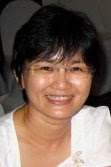Psychologist Roger Birkman in his book True Colors, states, "If you don't take the initiative in doing the things that are most important to you, years can pass without your knowing the satisfaction of being who you really are." As Birkman notes, it may not always be possible to pursue one's interest, or passions, in the work environment. Too often, passion and vocation are like separate tracks that never intersect. And many people are "stuck," feeling committed to careers that don't fulfill but do provide the financial resources to pay bills and sustain their chosen lifestyle. So, to leave their jobs to pursue passion will become an impossible mission.
Nevertheless, there is a saying, "Where there is a will, there is a way." Actually, we can start pursuing our passion outside working hours or during our leisure time. For sure, if we are passionate in what we are doing, we will have a strong desire, extra energy and enthusiasm to connect to our passion. In addition to this, no age limit should be set in pursuing our personal passion. BRITISH GOT TALENT's contestant, Susan Boyle is a good example. She was simply astounding in her performance version of the song "I Dreamed a Dream" from the popular stage musical Les Miserables. She was forty seven when her talent was first discovered few months ago.
On the other hand, not everybody knows what they really want to do to have a meaningful life. David A. Stoddard in his book "The Heart of Mentoring" suggests that an individual's quest to fulfill his or her vocational passion follows three phases:
1. Discovery
"Dream as only the sky is the limit" is the best advice as we explore the broad range of possibilities. Don't evaluate how realistic they are. What are the things we desired since we were children. Find out what we have done and what we have not done since then. And, one of the greatest joys of this discovery phase is that it can take us to the farthest horizons of our imaginations, something most of us have never ever thought it's possible before.
Around four year ago, when my daughter started Junior High School, I asked myself, "What am I passionate about? What would I really love to do so I could have a fulfilled life? Day by day, as my children become less and less dependent on me, I have more time to do things for myself. This is the time to discover what I really want for the rest of my life." I felt fortunate that for years reading has broaden my horizon. Consequently, it was not so difficult to find what I really want in life.
2. Tinkering
In this phase, the intention is to probe for possible ways of bringing passion and vocation together, not yet to find answers or solutions. It involves a lot of "what ifs". This is a circular process where we mentally march round and round, kicking around ideas for as long as necessary to learn and to evaluate what seems to make sense. Then we have to tinker with the idea and explore to see if it's feasible in the world we are living.
At the time I came to the tinkering phase, I've learned to play piano for five years, so what if I become a piano player? As I also enjoy sharing my parenting knowledge and experience with my friends, I thought probably a parenting consultant could be more feasible. What if I become a public speaker so my voice could be heard by more people? What if I improve my singing ability so I could fulfill my childhood's dream? These questions kept singing in my mind so I began to justify what I would do to discover my calling.
At this stage, a famous saying, "when the student is ready, the teacher will come," is really applicable. I then enrolled in a two-day coaching workshop, joined Toastmasters Clubs so I could learn and improve my presentation skill, read as many books as I could to improve and sharpen my knowledge, and started my vocal lesson two years ago. It took a couple of years before I came to the final phase.
3. Reality
In this phase, we undertakes a more serious and thorough investigation of viable possibilities, conducting necessary research and fact-finding, and encountering challenges. Keep in mind that a specific job is not necessarily the central issue. A job provides a context for fulfilling one's passion or calling. Contexts can change, but calling never does.
In my case, at the end I realize though I've been practicing hard to play the piano, it's still not the thing I really enjoy doing. I much prefer to deal with people and become a public speaker. After all these years of process, I believe that I'm now on the right track.
 In brief, an important concept to remember is:
In brief, an important concept to remember is:- In the discovery phase, we're "soaring the heights."
- In the tinkering phase, we're starting to come down for a landing.
- In the reality phase, the plane has landed.

